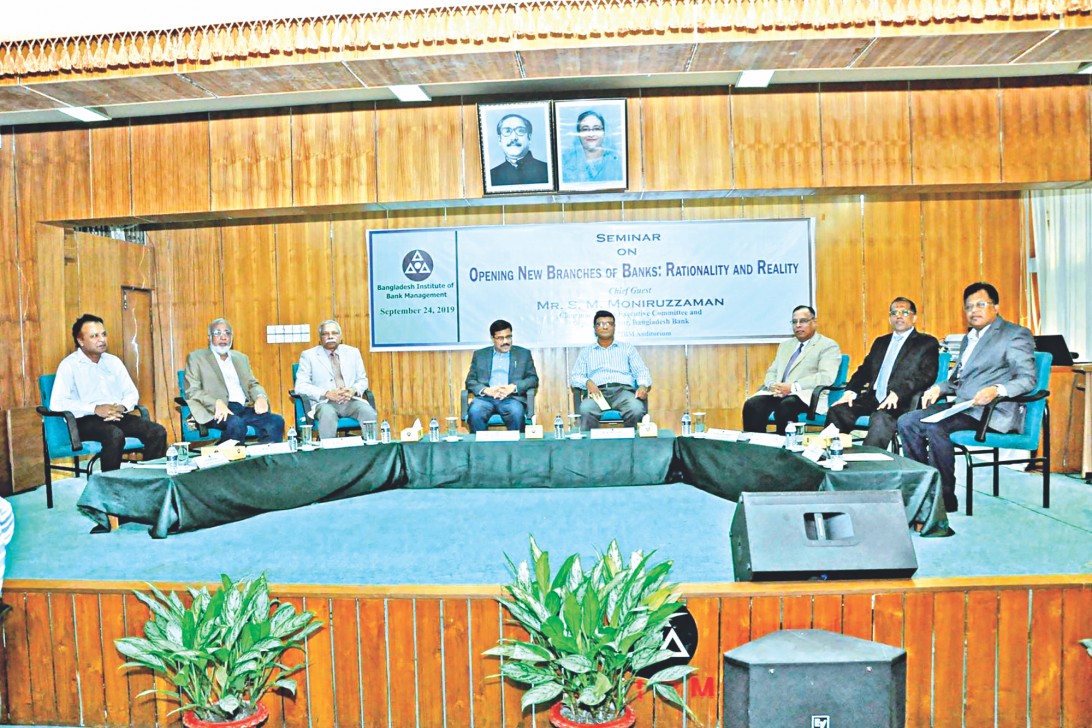Strike a rural-urban balance

Bangladesh Bank wants banks to strike a balance between rural and urban presence to promote balanced economic development in the country, said a top official yesterday.
“Opening a bank branch is mainly a profit-centred issue for a bank but it is more than that for the regulatory body,” said SM Moniruzzaman, a deputy governor of BB, at a seminar styled “Opening new branches of banks: Rationality and reality” organised by the Bangladesh Institute of Bank Management (BIBM) on its premises.
The deputy governor’s comments came at a time when the ratio of bank branches in urban areas is increasing despite the central bank’s guideline on one rural branch against one urban branch several years ago.
At present, there are 59 scheduled banks in the country and the number of branches they have is 10,326.
In 2000, nearly 60 percent of the bank branches were in rural areas against 40 percent in urban areas.
Some 18 years later, the ratio is 48:52 in favour of urban areas despite the entry of a dozen new banks into the system, according to data from BB.
The central bank has already streamlined the process for branch opening, Moniruzzaman said.
He also stressed on keeping the cost of opening bank branches or business centres at a low level to ensure that those become profitable fast.
There is still a demand for more bank branches, particularly in rural areas, despite introduction of alternative delivery channels such as mobile financial services and automated teller machines, said Helal Ahmed Chowdhury, supernumerary professor of the BIBM.
“Many rural areas are transforming into growth centres and those need banking services. Rural branches can also help banks get low-cost deposits,” said Chowdhury, also a former managing director of Pubali Bank.
From the national economic point of view, the network of branches should be geographically as diversified and evenly distributed as possible keeping in mind their viability, said Barkat-e-Khuda, a professor of the BIBM.
Some other speakers also said the business prospects in rural areas include remittance, agriculture and small credits and the possibility of attracting more deposits.
Md Nazimuddin, executive director of the BB and director general of the BIBM, chaired the event while Md Mohiuddin Siddique, an associate professor of the BIBM, presented a paper.
